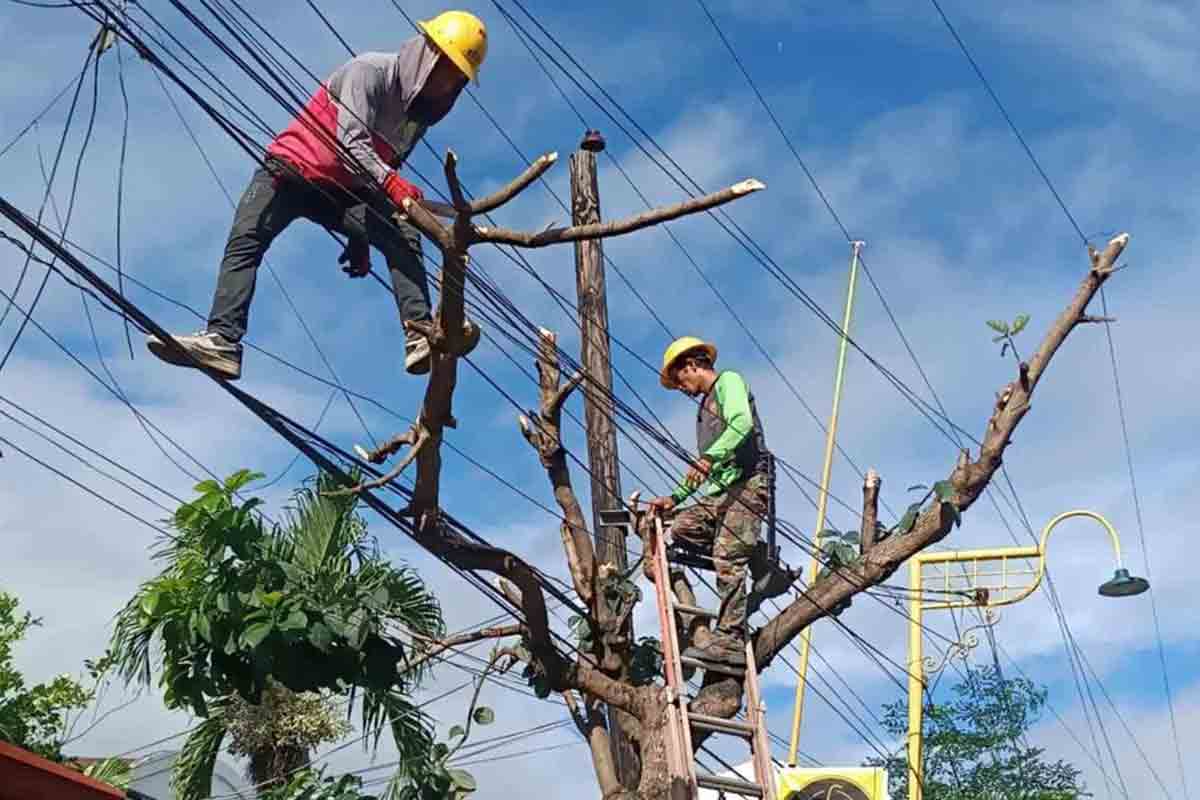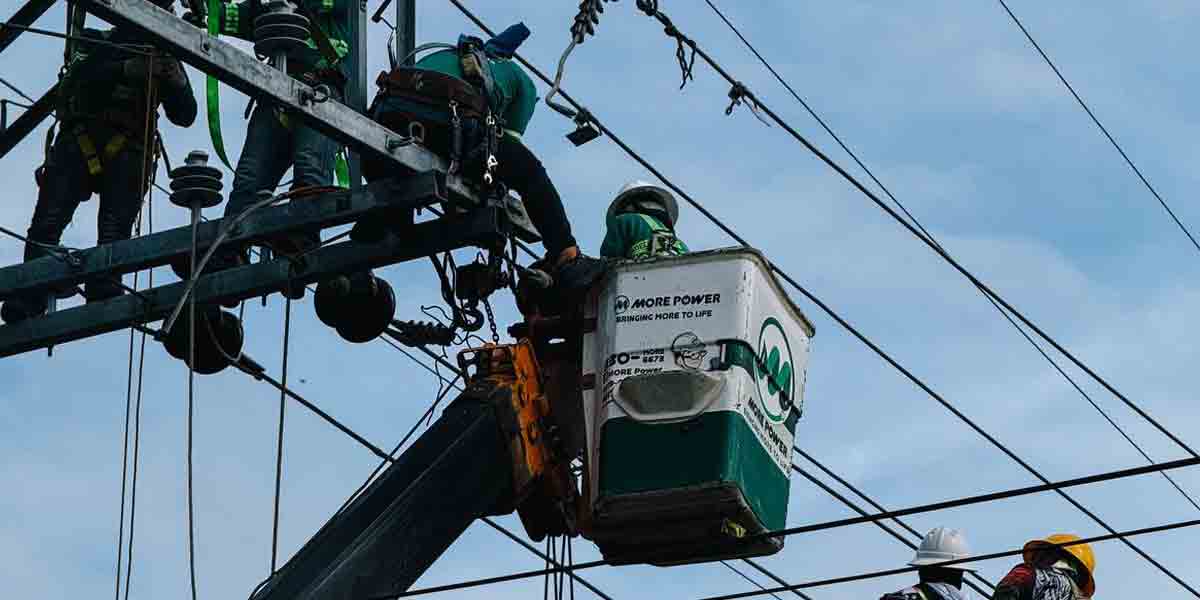The Supreme Court’s recent decision prohibiting exclusive franchises in the electricity sector marks a significant shift in the landscape of power distribution in Iloilo.
The dismissal of the Iloilo Electric Cooperatives’ (ILECOs) petition against the expanded franchise of MORE Electric and Power Corporation (MORE) under Republic Act No. 11918 underscores the imperative of competition in the industry.
But the ruling also presents an opportunity for innovation and improvement in service delivery.
The Supreme Court’s decision reflects the principles embedded in Section 11, Article XII of the Constitution, which prohibits exclusive franchises. This aligns with the broader goals of the Electric Power Industry Reform Act (EPIRA), aimed at fostering competition to ensure better services and affordable rates for consumers.
The Court’s stance is clear: the state’s police power and the common good take precedence over the exclusive rights of private entities.
In essence, this ruling eliminates the ILECOs’ monopoly, making way for MORE Power to operate in areas previously exclusive to ILECOs. The rationale is straightforward—competition can drive down prices and improve service quality, benefiting the consumers of Iloilo province.
Philippine senators have been vocal about the need for a competitive environment in the energy sector. During discussions, they emphasized the potential benefits of such competition, particularly in lowering electricity costs and enhancing service reliability. Some senators have also highlighted the importance of preparing for a future where renewable energy sources become more prevalent, necessitating innovation and efficiency from all players in the industry.
For the ILECOs, this is a pivotal moment. The end of their exclusive rights does not signify an end to their relevance. Instead, it should be viewed as a call to adapt and evolve. Here are several strategies that the ILECOs can consider the following:
Strategic Partnerships: Forming strategic alliances with larger, more technologically advanced power companies could bolster their capabilities. This could involve joint ventures, mergers, or collaborations in infrastructure development and service delivery.
Embrace Technological Advancements: Investing in modernizing their infrastructure and adopting new technologies can improve efficiency and reduce operational costs. Smart grids, for example, can optimize power distribution and minimize losses.
Focus on Customer Service: Enhancing customer service can set the ILECOs apart. Offering reliable, transparent, and responsive services can build customer loyalty, even in a competitive market.
Diversification: Exploring alternative energy sources, such as solar or wind, and offering new products and services can create additional revenue streams and reduce dependence on traditional power sources.
Community Engagement: Strengthening ties with the communities they serve through outreach programs and local partnerships can help maintain a positive image and foster loyalty.
The Supreme Court’s decision is a reminder that monopolies in essential services are not in the best interest of the public.
For the ILECOs, this ruling should not be seen as an insurmountable challenge but rather as an impetus for growth and improvement.
By embracing competition and focusing on innovation, the ILECOs can not only survive but thrive, continuing to serve the people of Iloilo with renewed vigor and improved services.
The future of energy in Iloilo is bright, and it is up to all players to ensure they contribute positively to this evolving landscape.
The Supreme Court’s recent ruling against the Iloilo Electric Cooperative, Inc. (ILECOs) I, II, and III highlights a transformative shift in the energy sector, emphasizing competition over monopolistic control.
The decision, which upheld the validity of Republic Act No. 11918 that allowed MORE Electric and Power Corporation (MORE) to expand its operations into areas previously under ILECOs’ exclusive franchise, sets a new precedent for electric cooperatives nationwide.
The ruling demands a strategic response from ILECOs if they are to remain relevant and competitive in the evolving energy landscape.
The Supreme Court, in its decision, underscored the constitutional prohibition against exclusive franchises, advocating for a more competitive market to benefit consumers.
The entry of MORE into the service areas of ILECOs promises to drive down electricity costs, a move that Congress believes will serve the common good. For consumers, this is a welcome development; for ILECOs, it signals a call to innovate and improve their services.
To survive and thrive amidst this competition, ILECOs must consider strategic partnerships and modernization efforts.
Collaborating with established energy companies could provide the necessary capital and expertise to upgrade their infrastructure, ensuring they can offer competitive rates and reliable service.
Public-private partnerships (PPPs) could be a viable option, enabling ILECOs to leverage private sector efficiency while maintaining public oversight.
Senators have pointed out that while the competition is inevitable, cooperatives like ILECOs have unique strengths, particularly their deep-rooted community connections and local knowledge.
By forming alliances with larger power companies, ILECOs can modernize their operations without losing their local touch. This collaboration could include joint ventures, technology sharing agreements, and even operational partnerships to enhance service delivery.
Another avenue for ILECOs to explore is the investment in renewable energy sources. The push for sustainable energy solutions is gaining momentum globally, and by aligning with this trend, ILECOs can attract environmentally conscious consumers and investors.
Developing solar, wind, and other renewable energy projects could not only reduce operational costs in the long term but also position ILECOs as forward-thinking players in the energy sector.
ILECOs should also focus on enhancing customer service and community engagement. Building strong relationships with their consumer base can foster loyalty and trust, which are invaluable in a competitive market.
Initiatives such as community outreach programs, transparent communication about service improvements, and responsive customer support can differentiate ILECOs from larger, less personal competitors.
Adapting to regulatory changes is crucial for ILECOs. Understanding and leveraging the provisions of the Electric Power Industry Reform Act (EPIRA), which encourages competition, can help ILECOs navigate the new market dynamics. Engaging with policymakers to ensure fair competition and advocating for regulations that support cooperatives can also help level the playing field.
The Supreme Court’s ruling has undoubtedly altered the landscape for ILECOs, but it also presents an opportunity for growth and innovation.
By embracing competition, forming strategic partnerships, investing in renewable energy, enhancing customer service, and adapting to regulatory changes, ILECOs can not only survive but also thrive in this new era.
The journey ahead will be challenging, but with a proactive and strategic approach, ILECOs can continue to play a vital role in powering Iloilo’s future.

























